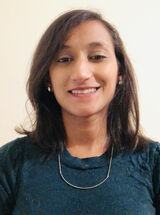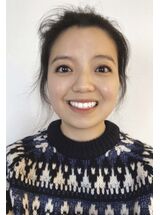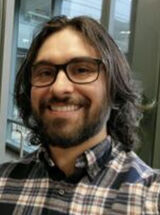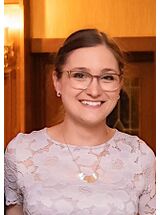Celebrating IGG Graduates
Please join us in our celebration as we highlight our IGG graduates.
The profiles are sectioned by degree type:
Doctor of Philosophy

Megha Basavappa
Mentors: Sara Cherry, PhD and Jorge Henao-Mejia, MD, PhD
Thesis Title: The role of long noncoding RNAs in innate antiviral immunity

Davia Blake
Mentor: Kristen Lynch, PhD
Thesis Title: The Role of Alternative Splicing and Alternative Polyadenylation in Regulating Activated T cell Biology
Research and Lab Description: I worked in Dr. Kristen Lynch’s lab within the Biochemistry and Molecular Biophysics department. My thesis included the characterization of dynamic alternative splicing changes that occurs on T cell activation, and how alternative splicing promotes T cell survival through the regulation of the apoptosis signaling pathway.
Post PhD Plans: Recently accepted a Senior Scientist position at Abbvie
Mentor Comment: Davia Blake was a transformative student – bringing our lab into the realm of “real” immunology. I feel so privileged to have had her in the lab and we will miss her passion for science, her willingness to help others, her rabbit in the background of zoom calls, her knowledge of immunology, and – most importantly - her reminder to always ask the question “but why does this really matter”. Looking forward to seeing her continue to grow as a scientist and use her knowledge to develop new therapies.

Megan Frederick
Mentor: Kenneth Zaret, PhD
Thesis Title: Overcoming The Chromatin Barrier: A Hematopoietic Pioneer Transcription Factor Paves the Way For Site-Specific ATP-Dependent Nucleosome Remodeling
Mentor Comment: Megan was a delight to have in the lab. She was independent and responsible. We would talk about an idea and then a few weeks later, Megan would show up with a beautifully designed experiment and data, done in duplicate or quadruplicate with statistical analysis, and annotated perfectly for a manuscript. What's not to like? Her project, to reconstitute regulatory events in artificially generated, compacted chromatin fragments of 2.7 kb in vitro, required way beyond the usual molecular biology expertise, and she developed the means to use long-read DNA sequencing technology to analyze the 2.7 kb DNA at the nucleotide level. Megan did an outstanding job preparing her main publication for her thesis and it was a relatively easy path to publication. Bravo, Megan!

Rina Kim
Mentor: Robert Vonderheide, MD, DPhil
Thesis Title: Ferroptosis of tumor neutrophils causes immune suppression in cancer
Mentor Comment: We are so proud of Rina Kim and wish her well in medical school. Rina is a terrific scientist and friend to the whole lab and community. Her report in Nature on myeloid cells and cancer is a real page-turner! We will miss Rina here at Penn.

Patrick Lundgren
Mentor: Christoph Thaiss, PhD
Thesis Title: A subpopulation of lipogenic brown adipocytes drives thermogenic memory

Sarah Maddux
Mentor: Michael A. Silverman, MD, PhD
Thesis Title: Akkermansia muciniphila modulates early life immune development
Research and Lab Description: I studied the impact of the early life microbiota on immune development and autoimmunity risk in Dr. Michael Silverman's lab
Post PhD Plans: I am currently in a postdoctoral position at Amgen developing humanized mouse models to study autoimmunity. I plan to continue doing early discovery inflammation research in the biopharmaceutical industry.

Joey Perry
Mentor: Christopher Hunter, PhD
Thesis Title: Immune checkpoint mediated oversight of regulatory T cells at homeostasis and during infection
Post PhD Plans: Currently Postdoc Fellow -- Sharpe Lab @ Harvard U
Mentor Comment: Joey published well and is an amazing scientist and great colleague. I hold him in the highest esteem and think he is an example of what an IGG student should be.

Lindsey Rice Shallberg
Mentor: Christopher Hunter, PhD
Thesis Title: Coping with latent infection in the central nervous system
Mentor Comment: Lindsey published well and is an amazing scientist and great colleague. I hold her in the highest esteem and think she is an example of what an IGG student should be.

Jennifer Wu
Mentor: E. John Wherry, PhD
Thesis Title: In vitro modeling of CD8 T cell exhaustion uncovers novel transcriptional regulator Bhlhe40
Research and Lab Description: My thesis work involved development and benchmarking of an in vitro model of CD8 T cell exhaustion, which we then combined with high-throughput screening methods to identify novel transcriptional regulators of T cell exhaustion.
Post PhD Plans: Senior Scientist at Regeneron

Scarlett Yang
Mentor: Andrei Thomas-Tikhonenko, PhD
Thesis Title: Chasing a beta life: Role of the ubiquitin ligase FBXW7β isoform in B-lymphopoiesis and leukemia
Combined Degree, MD-PhD

Stacy Thomas
Mentor: Gregory Beatty, MD, PhD
Thesis Title: Liver macrophages in pancreatic cancer metastasis
Research and Lab Description: Stacy’s research in the lab of Dr. Gregory Beatty delved into the role of liver macrophages in metastasis in pancreatic cancer, which has implications for the development cancer therapies. After determining liver macrophages had minimal impact during the seeding phase of metastasis but promoted metastatic outgrowth, Stacy used a myeloid agonist, a soluble β-glucan, to study if liver macrophages could be “retrained” to inhibit rather than support metastatic outgrowth. Using murine models, Stacy determined that β-glucans triggered activation of liver resident macrophages (Kupffer cells) and these Kupffer cells respond to treatment with a β-glucan by inhibiting liver metastasis. Moreover, Stacy’s research revealed that β-glucan treatment remodeled the immune response to liver metastases and sensitized metastatic lesions to anti-PD1 therapy.
Post PhD Plans: Applying for a Pathology residency in fall 2023
Mentor Comment: Stacy is an exceptional scientist who focused her thesis work on understanding determinants in the liver that regulate its susceptibility to metastasis, with a particular emphasis on liver metastasis. Through her research, Stacy discovered that tissue resident macrophages in the liver can be instructed with anti-metastatic activity, indicating their pliability. Her findings shed new light on the potential for targeting tissue resident macrophages in the liver as a novel therapeutic strategy for treating liver metastasis. It was a pleasure to work with Stacy over the years, and we are excited to see her continued success in her career.

